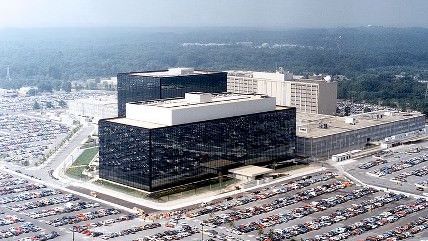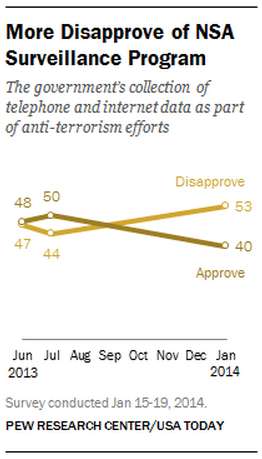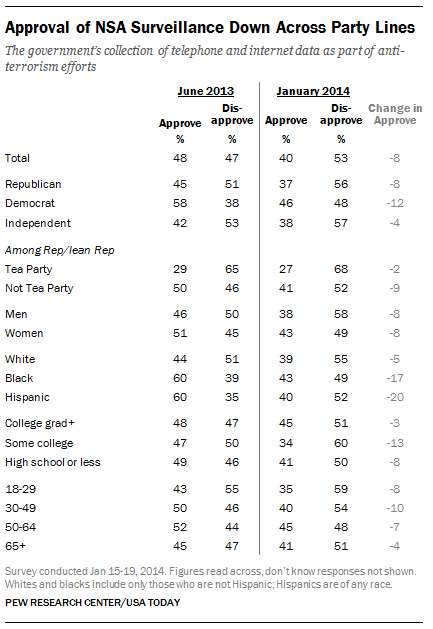New Poll Highlights Divide in GOP Over NSA Metadata Collection


A new poll by Pew and USA Today shows that 53 percent of Americans disapprove of the NSA's collection of Internet and phone metadata. The poll also found that a clear majority of respondents who said that they had heard "a lot" or a "a little" about President Obama's NSA reforms do not think that the changes will make any difference to privacy protections or how difficult it is to fight terrorism.
Disapproval of the NSA's collection of Internet and phone metadata has increased among all of the demographic groups measured in the poll. No matter the age, sex, educational level, race, or political affiliation, all have increased their disapproval of the NSA's metadata collection program since June 2013.
The NSA's controversial collection of Internet and phone metadata has more support today, as it did in June 2013, among Democrats than among Republicans or Independents. This month, 46 percent of Democrats approve of the metadata collection program, while only 37 percent of Republicans and 38 percent of Independents do. However, Democrats have shifted their opinion more than Republicans and Independents between June 2013 and this month. While approval of NSA metadata collection fell by 8 and 4 percent among Republicans and Independents respectively, among Democrats approval dropped 12 percent.
Chart from Pew below:

Although more than half of Republicans may disapprove of the NSA's metadata collection, Pew notes that there is a divide within the GOP on the issue:
There continues to be a substantial divide within the Republican base: Republicans and Republican leaners who agree with the Tea Party are overwhelmingly opposed to the NSA program, while those who do not identify with the Tea Party are more divided.
This difference within the GOP is perhaps best highlighted by the differences between Rep. Peter King (R-N.Y.), one of the NSA's staunchest defenders, and Sen. Rand Paul (R-Ky.), who is leading a suit against the NSA over its surveillance activities.


Show Comments (12)